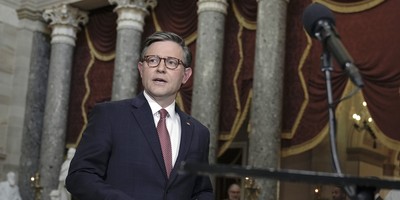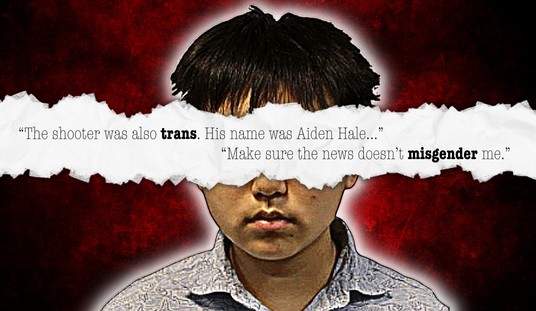Perhaps the greatest lesson to be learned by Democrats from this week’s “bitter” brouhaha is that when you get advice about how to hook rural, white, blue-collar voters from a guy named Mudcat, you’d best listen.
Dave “Mudcat” Saunders—Democratic strategist, bluegrass enthusiast, and general pied piper of the “Bubba vote,” as he calls it—had a little-noticed fight with liberal bloggers back in June 2007 that perfectly presaged this week’s controversy.
“I have bitched and moaned for years about the lack of tolerance in the elitist wing of the Democratic Party, or what I refer to as the ‘Metropolitan Opera Wing.’ These are the people who talk of tolerance but the only true tolerance they ever exhibit is for their own pseudo-intellectual arrogance,” the then-Edwards adviser proclaimed in his typical profanity-peppered prose on Time magazine’s Swampland blog.
The liberal blogosphere, capital of the elitist wing, shot back in predictable, intractable style. MyDD’s Chris Bowers called Mudcat’s post a “work of paranoid genius” while a Daily Kos blogger seemed unclear as to “why the Democratic party should give respectful attention to rural voters (in any region of the country).” In short, Saunders was roundly criticized for deigning to criticize the liberal activist support of the blogosphere in the name of “rural, southern whites.”
Nevermind the fact that those rural whites are the key to Democrats winning back the South, much of the Midwest, and the Great Plains states, and subsequently winning national elections again. Though his electoral record is spotty (see Bob Graham and John Edwards), Mudcat’s call for respect of rural whites is nonetheless important, and has produced results.
Recommended
When his message has met up with the right candidate who was willing to listen, there were glimmers of hope for the future of the Democratic Party. In 2001, he and other advisers managed to turn the voters of southwest Virginia back into Democrats, fielding Mark Warner, whose pedigree was as effete as John Kerry’s. Mudcat helped the Connecticut native and Harvard-educated millionare cozy up to rural voters by serving up basic respect and a NASCAR sponsorship. The state of Virginia is now more purple than it’s been in quite some time.
Unfortunately for them, Democrats have chosen to follow the advice of another political acolyte with a somewhat less constructive approach. Thomas Frank, author of “What’s the Matter of Kansas?” gave voice to the feelings of another bitter political constituency in 2004: Those with “Redefeat Bush” bumper stickers on their cars and conspiracy theories in their hearts.
Those who woke up on Nov. 8, 2004 and thought, like the headline of a prominent British newspaper, “How can 59,054,087 people be so DUMB?” needed an answer, and they found it in Frank’s bestseller. His thesis was that rural voters had been duped by Republicans into voting against their economic self-interests, and that if they could just be shown the error of their ways, they’d gladly become the big-government labor-loyal proletariat they should be. The fact that the Democratic ticket had looked and acted like a competitive line-up for Monty Python’s Upper-Class Twit of the Year contest had nothing to do with it, of course.
The fact that liberals chose Frank’s handbook for condescension over Mudcat’s more constructive message is telling. It’s a proposal for a fundamental shift in American politics—from a center-right nation to a center-left one—without any movement required on the part of the Democratic Party. It’s a plan built on wooing rural voters by first questioning their sanity, motives, and moral fiber.
To many liberals, views as detestable as conservative ones cannot be explained by anything other than mental illness and ill will, false motives and false consciousness. The “Blame America first” crowd became the “Blame the voter first” crowd, and the relatively sanguine results of 2006 seemed to validate their theory. It’s a political strategy without personal responsibility born of a political philosophy that eschews the same value, and it was always destined to fail.
Obama’s comments about small-town America, delivered to a group of rich liberal donors in San Francisco, were the utterly unsurprising culmination of a electoral plan built on disrespecting the very voters needed for election.
This week, Hillary Clinton gave Obama the critique someone should have given the Democratic Party four years ago. "Instead of looking at himself," when asked about his inability to connect with rural, Pennsylvania voters, "he blamed them,” Clinton said.
The failure of the Democratic Party to take responsibility for its own electoral failures is perhaps a perfectly natural intellectual offshoot of a political philosophy that requires no one to take responsibility in their own lives, but it lies at the heart of Democrats’ problem with rural voters.
As a 2006 political science study of rural populations showed (and as anyone who’s actually lived in a small town could tell you), the "individualistic ethic and legacy of self- employment and home-ownership inclines them to adopt the self-image of the independent entrepreneur and property owner rather than that of the laborer in need of state regulation and protection .. Republican emphasis on personal effort, limited government and free markets fits comfortably within this self-image" (James G. Gimpel and Kimberly A. Karnes, University of Maryland).
Liberals routinely assume small towns are unfailingly desperate places filled with helpless people largely because they can think of no other explanation for people living in them. They project their own values on those communities, mistake proximity to a sushi bar with quality of life, and assume these people must be waiting for someone to rescue them.
But the man who owns a mechanic’s shop or a contracting business with his wife and raises a family in a house of his own on a decent chunk of land is not looking for the government to rescue him from anything. He has troubles, but he is not helpless; he may lack a Ph.D., but he is not stupid, and the suggestion thereof is not appreciated.
Kansas itself is a perfect example. At the time Frank’s book was written, the state had enjoyed lower unemployment numbers than the rest of the country throughout the '90s and into the 21st century, and reported only 3 percent of its citizens living below the poverty line, as opposed to about 12 percent nationally.
Obama’s messaging has been a smashing success thus far in his campaign, and even has the potential, on its face, to speak to rural whites in a way other Democratic messages have not. He often sounds more positive about the American dream than Edwards and less cynical about the future than Clinton, which could work well if rural whites actually believed what he said.
“I’m asking you to believe,” reads the welcome message for his web site, “Not just in my ability to make change in Washington… I’m asking you to believe in yours.”
But this week he sent the same old Democratic message to rural voters, and they’re listening.
Barack Obama: He can’t believe in you.

























Join the conversation as a VIP Member